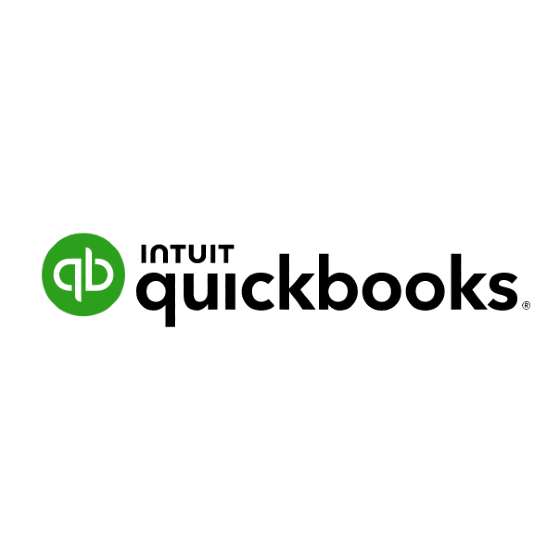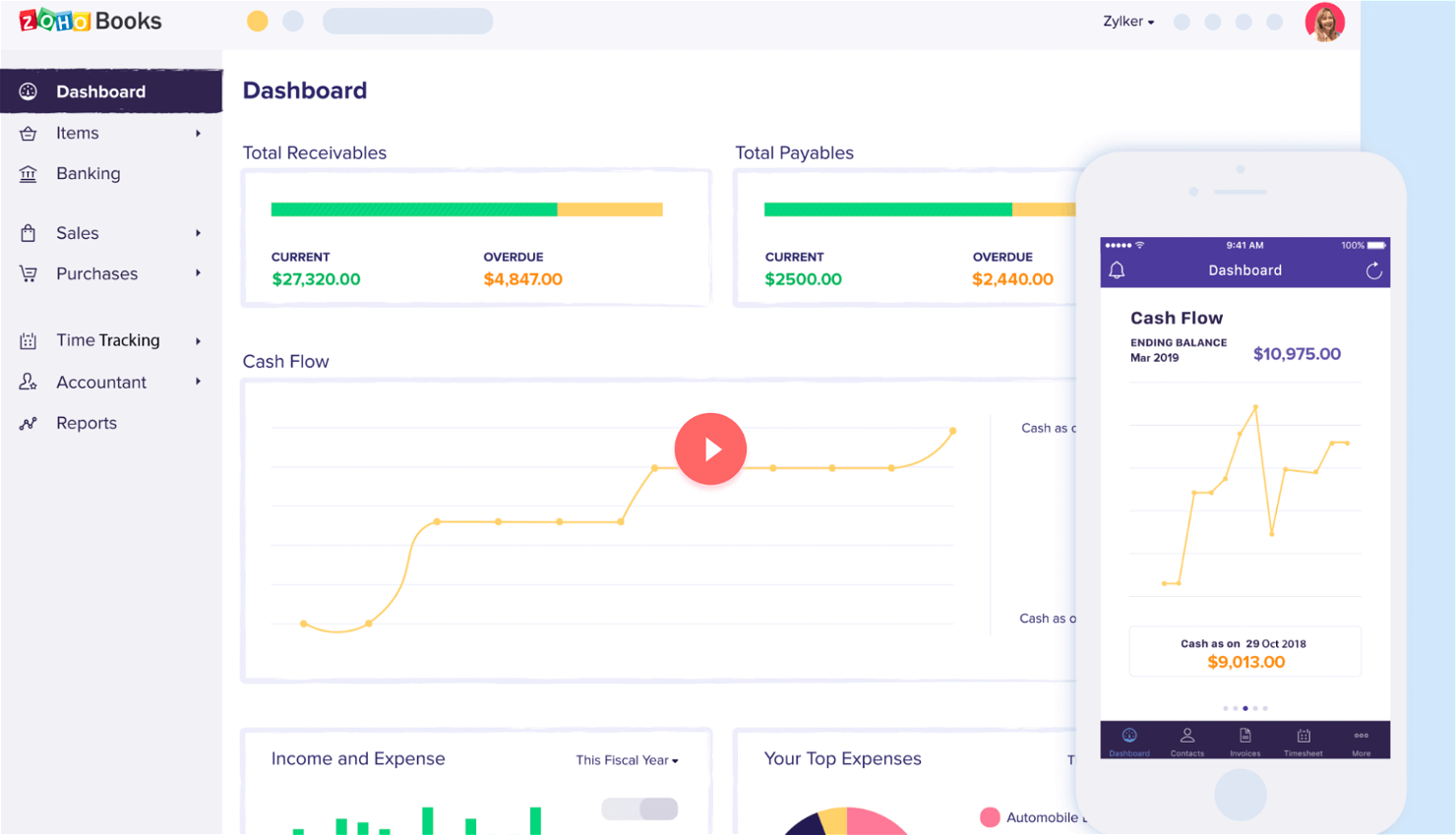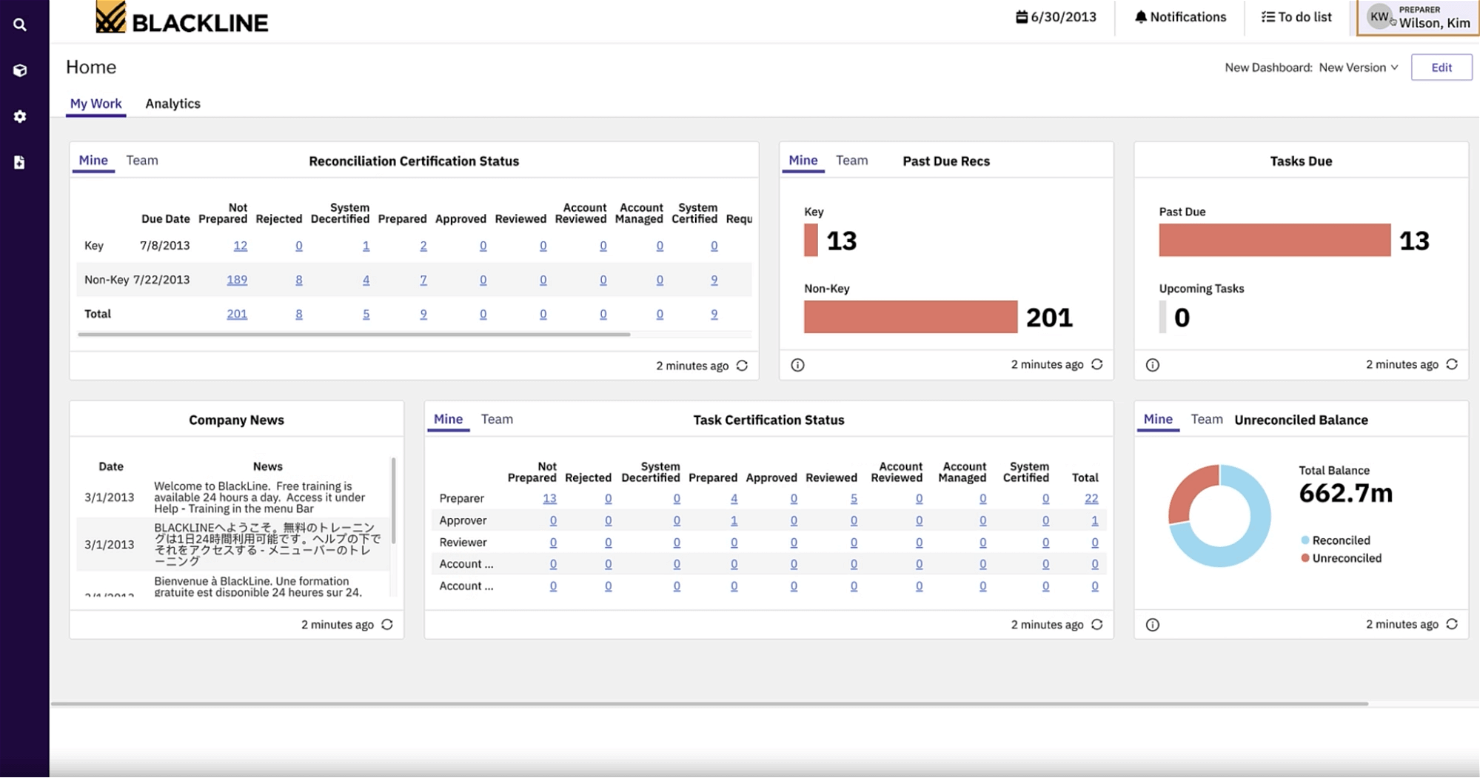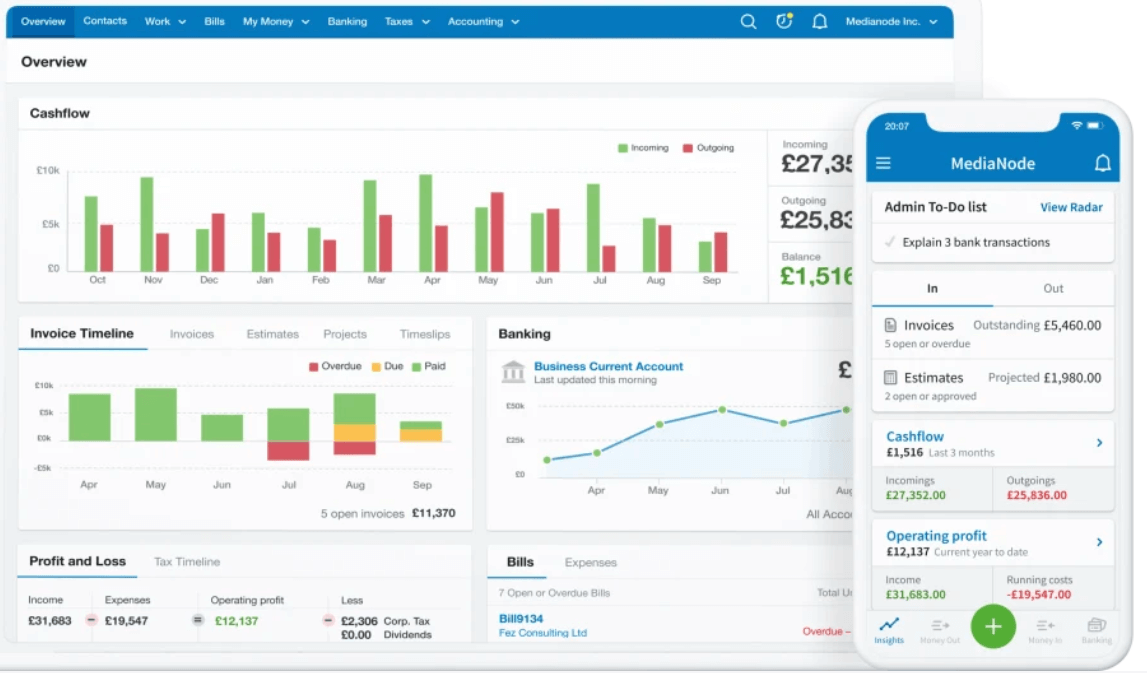10 Best Online Accounting Software Provider Shortlist
Here's my pick of the 10 best software from the 19 tools reviewed.
Our one-on-one guidance will help you find the perfect fit.
With so many different accounting solutions available, figuring out which one is right for you can be tricky. You know you want to have the flexibility to access and update financial data from anywhere with an internet connection but need to figure out which tool is best. I've got you! In this post I'll help make your choice easy, sharing my personal experiences using and comparing dozens of different tools and my knowledge of what makes a good accounting software, with my picks of the best online accounting software.
What is Online Accounting Software?
Online accounting software refers to a web-based tool used to perform various accounting tasks, such as recording transactions, generating financial reports, and managing invoices, using web browsers or dedicated applications. Among the features that make these tools special are real-time financial reporting, invoicing, expense tracking, bank reconciliation, and collaboration tools.
These features help simplify financial management, improve accuracy, and enhance collaboration among users, regardless of their physical location. Perfect for the dynamic nature of online and remote work environments.
Overviews Of The Best Online Accounting Software for 2024
Here, I’ll expand on each of the online accounting tools that made my top 10 shortlist. I have purposely kept each section brief and followed a structure allowing you to compare their key features easily.
QuickBooks Online is easy to use, even for people with no accounting experience, and is especially suited to the needs of small business owners and solopreneurs. All plans include a mobile app, user support, and app integration.
QuickBooks Online is an excellent choice for small business owners and freelancers needing basic accounting and bookkeeping.
Why I picked QuickBooks Online: I selected QuickBooks Online as an excellent online accounting software option because of its comprehensive features, ease of use, and popularity among small businesses and professionals.
With its intuitive interface and user-friendly design, QuickBooks Online is easy to navigate. The platform offers helpful tutorials and resources to help users make the most of its features.
QuickBooks Online Standout Features and Integrations
Standout features include invoicing, expense tracking, bank reconciliation, inventory management, payroll processing, automated sales tax calculations and scalability (it grows with your business). It also offers reporting and analytics tools, enabling businesses to gain real-time financial insights.
Integrations include over 700 business apps and services, including many CRM, payment processing, and time-tracking tools.
Pros and cons
Pros:
- Security
- Integrations
- Breadth and quality of features
Cons:
- Occasional customer support issues
- Issues with transition from QuickBooks Desktop
Zoho Books is the online accounting platform for growing businesses today, offering invoicing, expense tracking, inventory management, and financial reporting. Zoho Books' user-friendly interface and automation features make it easy to use.
A standout feature of Zoho Books is that it integrates with other Zoho apps, making it a part of an extensive suite of business applications.
Zoho Books is an excellent project management accounting software for managing budgets, billing, timeline tracking, and forecasting.
Why I picked Zoho Books: I chose Zoho Books for its comprehensive features, including customizable invoicing, automated expense tracking, inventory management, multi-currency support, and tax compliance tools. Zoho Books integrates with other Zoho applications making it an especially appropriate option for entrepreneurs.
Zoho Books Standout Features and Integrations
Standout features include customizable invoicing, tracking invoice and expense status, recurrent invoices and automated payment reminders, inventory management, multi-currency transactions, automatic tax calculations and tax report generation, and mobile access. The real-time dashboard visualizes cash flow, income and expenses, your top expenses, and project status.
Integrations include other Zoho applications, payment gateways, including PayPal, Stripe, Square, and 2Checkout, CRM systems such as Salesforce, HubSpot, and Pipedrive, expense management solutions like Expensify, Receipt Bank, and Pleo, workflow tools such as Zapier, Automate.io, and Microsoft Flow and others.
Pros and cons
Pros:
- Customer support
- Integration with other Zoho products
- Simple external banking feeds
- Clean and clear layout
Cons:
- Inventory feature needs improvement
- Can't customize automated reports
FreshBooks is an online accounting platform designed for small service businesses. Its invoicing capabilities are a standout feature, allowing users to create professional invoices, track payments, and set up automatic payment reminders.
FreshBooks is an excellent choice for small business owners needing simple yet comprehensive accounting software.
Why I picked FreshBooks: I included FreshBooks in the shortlist of the best online accounting software options because of its user-friendly interface, time-saving features, and strong support for small businesses and freelancers. Its customization options, cloud-based accessibility, seamless integration with third-party apps, and reliable security measures make it an ideal choice for service businesses.
FreshBooks Standout Features and Integrations
Standout features include customized and branded invoices and cost estimates, time and expense tracking, payment processing, financial reporting, and collaboration tools. FreshBooks also has time-saving features like recurrent invoicing and late payment reminders.
Integrations include CRM systems (Salesforce, HubSpot, and Capsule), e-commerce platforms (Shopify and WooCommerce), Payment processing (PayPal, Stripe, and Square), time tracking tools (Trello, Basecamp, and Toggl Track), and marketing tools (Mailchimp and Zapier).
Pros and cons
Pros:
- Reliability and adaptability
- Reporting and dashboards
- Branded and recurrent invoicing features
Cons:
- Mobile app needs improvements
- Occasional lag in automatic payments
BlackLine is a cloud-based financial accounting software providing account reconciliation, journal entry management, and financial reporting. BlackLine's user-friendly platform offers helpful automation features, reducing manual data entry and minimizing errors.
A standout feature of BlackLine is its ability to integrate with many ERP and financial systems, making it a flexible solution for businesses with complex accounting needs.
BlackLine is an excellent tool for process standardization and internal control.
Why I picked BlackLine: I picked BlackLine for its automation features, intercompany accounting, and improved accuracy and transparency of financial operations. It is user-friendly and intuitive to use.
BlackLine Standout Features and Integrations
Standout features include automated account reconciliations, intercompany accounting, real-time reporting, journal entry management, compliance and control features and real-time, flexible, personalizable dashboards.
Integrations include a range of Enterprise Resource Planning (ERP) systems and other financial applications such as: SAP ERP systems, Oracle ERP systems, Microsoft Dynamics ERP solutions, Workday Financial Management and many more.
Pros and cons
Pros:
- Automation
- Real-time detailed reporting
- Reconciliation dashboard
Cons:
- Some integrations are very technical
TallyPrime is designed for global small and medium companies and prides itself on its simplicity. It offers a suite of accounting features and inventory management tools.
Its standout feature is the ability to handle multiple currencies and languages, making it an excellent choice for enterprises with global operations.
Overall, TallyPrime is a comprehensive and easy-to-use online accounting software solution for global small and medium-sized businesses.
Why I picked TallyPrime: I selected TallyPrime for its easy-to-use interface, efficient inventory management, multi-currency transactions, and tax compliance tools. It is a versatile solution that simplifies complex accounting tasks, offers real-time reporting and analysis, and caters to diverse industry requirements.
TallyPrime Standout Features and Integrations
Standout features include efficient inventory management, multi-currency support, financial reporting, real-time business dashboards, and ease of use.
Integrations can be developed to include e-commerce platforms like Shopify, WooCommerce, and Magento, CRM systems such as Salesforce, Zoho CRM, and HubSpot, and tax management tools and government portals to simplify tax filing and ensure regulatory compliance. TallyPrime offers limited direct integration capabilities with third-party applications compared to other accounting software
Pros and cons
Pros:
- Superb customer support
- Customizable reporting
- User-friendly interface
Cons:
- Limited invoicing template options
BQE CORE is a cloud-based accounting software designed specifically for professional service firms. It offers time and expense tracking, invoicing, project management, and financial reporting.
BQE CORE is known for its flexible reporting capabilities. It also offers a range of integrations with other business applications, making it easy to manage operations from a single platform.
BQE CORE is a reliable accounting software solution ideal for professional service firms.
Why I picked BQE CORE: I included BQE CORE in the top online accounting software solutions for its comprehensive project management and accounting features designed to cater to the unique needs of professional service firms, such as architects, engineers, consultants, and legal professionals.
BQE CORE Standout Features and Integrations
Standout features include time and expense tracking, project management, resource scheduling and forecasting capabilities, customizable real-time reports and dashboards, tools tailored for various professional service industries, a user-friendly interface, and mobile app.
Integrations include popular accounting software like QuickBooks and Xero, payment gateways like Stripe, Authorize.Net, and PayPal, CRM systems like Salesforce and HubSpot, cloud storage solutions like Google Drive, Dropbox, and OneDrive, email clients like Microsoft Outlook and Gmail, and Zapier.
Pros and cons
Pros:
- Excellent customer support
- Ability to customize invoicing and reporting
- Easy to track processes in one place
Cons:
- Invoice editing not user friendly
- Time-consuming to learn
FreeAgent is an award-winning accounting software option for small businesses, freelancers, and contractors. It helps manage day-to-day administrative and accounting processes and offers features like invoicing, expense tracking, project management, and financial reporting.
FreeAgent's standout feature is its automation capabilities, saving your business time by reducing manual data entry. It also offers integrations with other business applications, such as PayPal, Stripe, and Dropbox, so you can manage your business operations from a single platform.
FreeAgent is a good fit for businesses looking for a comprehensive accounting software solution with automation capabilities and integrations.
Why I picked FreeAgent: I selected FreeAgent for its automation capabilities and the opportunities it offers small businesses and freelancers to manage day-to-day administration and accounting painlessly. It is a comprehensive and user-friendly online accounting solution.
FreeAgent Standout Features and Integrations
Standout features include customizable invoicing features, including branding and recurrent invoices, multi-currency support, tax compliance and forecasting, time tracking and project management, intuitive dashboard and reporting.
Integrations include payment gateways such as PayPal, Stripe, and GoCardless, CRM systems like Capsule CRM and Tactile CRM; e-commerce platforms such as Shopify and WooCommerce, time tracking tools like Toggl, Harvest, and TimeCamp, expense management solutions like Receipt Bank and Expensify, workflow tools such as Zapier and Integromat and others.
Pros and cons
Pros:
- One-stop solution for all accounting needs
- Sends reminders
- Intuitive and easy to use
Cons:
- Doesn't scale—strictly for small and micro-businesses
- Mobile app is slightly buggy
Wave is a popular accounting software for small businesses and freelancers. It provides features including invoicing, expense tracking, and financial reporting.
Wave's standout feature is that it is free, making it an attractive option for small businesses with limited budgets. Despite being free, Wave offers helpful automation features like bank connections, payment reminders, and automatic report generation.
Overall, Wave is an excellent choice for businesses and freelancers with no payroll needing a reliable accounting software solution that won’t break the bank.
Why I picked Wave: I selected Wave for its user-friendly, feature-rich, and cost-effective online accounting solution geared towards small businesses, freelancers, and entrepreneurs. Wave offers free invoicing, expense tracking, and basic bookkeeping functionalities.
Wave Standout Features and Integrations
Standout features include customizable invoices with unlimited invoicing capabilities at no cost, double-entry accounting, account reconciliation, financial reports, receipts scanning, user-friendly interface.
Integrations include a limited but essential set of third-party tools and services such as Wave payments, Wave payroll and receipts, Zapier and Etsy.
Pros and cons
Pros:
- Free
- Simple to use
- Helpful tech support
- Basics are easy and quick
Cons:
- Limited data entry automation
- Website occasionally freezes
Aplos is a cloud-based accounting software designed specifically for nonprofit organizations. It offers fund accounting, donation tracking, and financial reporting. Aplos is easy to use and has a user-friendly interface.
Additionally, Aplos offers a range of integrations with other nonprofit software. For example, it links with donor management and fundraising systems, making it easy to manage operations from a single platform.
Overall, Aplos is an excellent choice for nonprofits seeking a comprehensive and easy-to-use online accounting software solution.
Why I picked Aplos: I chose Aplos for its specialized focus on non-profit organizations and churches, providing a tailored and user-friendly online accounting solution to address their unique financial management needs.
Aplos Standout Features and Integrations
Standout features include fund accounting allowing users to track and report on individual funds and donations, donor management tools, customizable online giving forms, event registration and ticketing features designed to comply with FASB accounting standards for non-profit organizations.
Integrations include QuickBooks Online, Gusto, a payroll and HR management platform, Church Community Builder, Kindful, a donor management and fundraising platform, DonorSearch, Txt2Give and Zapier.
Pros and cons
Pros:
- Relevant integrations
- Scales for larger churches and nonprofits
- Easy to use
Cons:
- Reporting is limited and not customizable
- Could do with user interface improvements
Veryfi Receipts OCR & Expenses is an artificial intelligence-powered receipt and expense tracking software for businesses of all sizes. It uses advanced Optical Character Recognition (OCR) technology to extract data from receipts, invoices, and other financial documents, making it easy to track expenses.
Veryfi Receipts OCR & Expenses offers automatic categorization, real-time expense tracking, and integrations with popular online accounting software like QuickBooks and Xero.
Overall, Veryfi Receipts OCR & Expenses is a user-friendly solution for businesses looking to make their expense tracking more efficient.
Why I picked Veryfi: I picked Veryfi for its innovative approach to automating bookkeeping and expense management, utilizing AI and machine learning to cater to the needs of small businesses, freelancers, and contractors.
Veryfi Standout Features and Integrations
Standout features include using AI and machine learning to extract data from receipts and invoices in real-time, automatic categorization of transactions, mileage tracking using GPS, document management, encryption and secure data storage, modern and intuitive interface and mobile app.
Integrations include popular accounting software like QuickBooks, Xero, and FreshBooks, Expensify, a leading expense management software; payment gateways such as Stripe, and cloud storage solutions like Google Drive, Dropbox, OneDrive, and Zapier.
Pros and cons
Pros:
- Ease of integrations
- Duplicate receipts verification (and deletion)
- Retailer identification
Cons:
- Tier prices jump steeply
- Disrupted services on occasion
| Tools | Price | |
|---|---|---|
| QuickBooks Online | From $15/user/month | Website |
| Zoho Books | From $15/org/month | Website |
| FreshBooks | From $19/per/month | Website |
| BlackLine | Pricing Upon Request | Website |
| TallyPrime | From $630/year | Website |
| BQE Core | From $7/user/month (billed annually) | Website |
| FreeAgent | From $13.50/user/month | Website |
| WAVE | From $16/user/month | Website |
| Aplos | $29.50/account/month | Website |
| Veryfi | From $15 for up to 300 scans per month, free for up to 30 scans per month | Website |

Compare Software Specs Side by Side
Use our comparison chart to review and evaluate software specs side-by-side.
Compare SoftwareOther Online Accounting Software Options
The market for online accounting software has grown significantly in recent years, and there are estimates that it now accounts for a substantial proportion of the overall accounting software market. This growth can be attributed to the increased demand for user-friendly, cost-effective, and scalable solutions that cater to the unique needs of today’s businesses.
Here are a few more worthwhile options that didn’t make the best online accounting software providers list:
Selection Criteria
I researched and compared dozens of online accounting software tools to create a long list of options. Next, I considered specific software features and condensed the list further by looking at how easy the software is to use and the technical support available for onboarding, training, and maintenance, narrowing the initial list of close to 100 to the best 12 options.
Here's an overview of the primary selection and evaluation criteria I used to develop my list of the best online accounting software for this article:
Core Functionality
Online accounting software typically shares core functionality features, including:
- Invoicing features and automation
- Expense tracking and scanning
- Bank reconciliation
- Financial reporting and visualization
- Tax compliance
- Real-time data
- Customizable dashboards
- Mobile apps
- Bank-level data security
Key Features
Apart from the core functionality, different online accounting software solutions have features that make them stand out. For instance, some offer solutions for a specific industry, others are especially good for automation and integrations, and yet others offer unique features like resource tracking.
Usability
Advanced functionality and standout features are not good if the software takes months to learn and is challenging to use. Online accounting solutions benefit from intuitive and user-friendly interfaces and easy-to-use mobile apps.
Integrations
Online accounting software core functionality is magnified and enhanced by integrating easily with ERP and CRM systems, other accounting software, payroll software, payment gateways, e-commerce platforms, HR systems, document management tools and others.
Integrations mustn't be overly technical.
Customer Support
Customer support is an essential feature of online accounting software. This includes education and learning resources, dedicated support during onboarding, and technical support in case of problems during use.
Online accounting software providers usually claim to have excellent customer support. The truth is, some do, and some don’t—it is important to dig deep and even test the level of support.
Price and Value
Online accounting software is generally cheaper than offline accounting options (and costs are distributed since you usually will pay a subscription). Still, higher-end online accounting solutions can cost between &50 and &500 per month, with some offering custom pricing that can be higher.
Assessing and matching your needs to the available software options is essential. You may find that a basic plan, or even a free option, is more than adequate to accommodate your business’s accounting and bookkeeping needs.
People Also Ask
Here are some common questions and answers about buying online accounting software.
What are the benefits of using online accounting software?
Online accounting software can streamline your accounting processes, save time and money, and provide real-time insight into your financial performance. More specifically it:
- Offers access from wherever you are on different devices.
- Often helps you save on costs because you don’t need expensive hardware and installations. You’ll also save on onsite maintenance.
- Enhances collaboration, and many users can access the same data simultaneously.
- Shifts financial data security and costs from you to the online accounting software provider.
What is the most popular online accounting software?
There are different popular options depending on region, industry, and business size. However, QuickBooks Online is popular with small and medium businesses globally and has over 7 million customers.
Which software is easiest to use?
Which online accounting software tool users consider most intuitive depends on how versed the user is in accounting and their business needs. FreshBooks has earned high marks, however.
Conclusion
Selecting the right online accounting software will help to ensure your company’s financial processes are efficient, accurate, secure, and scalable.
The rest is up to you.
If you’re interested in getting more corporate finance insights or the latest in the tech industry, sign up for our newsletter to get the latest updates from financial leaders.




















